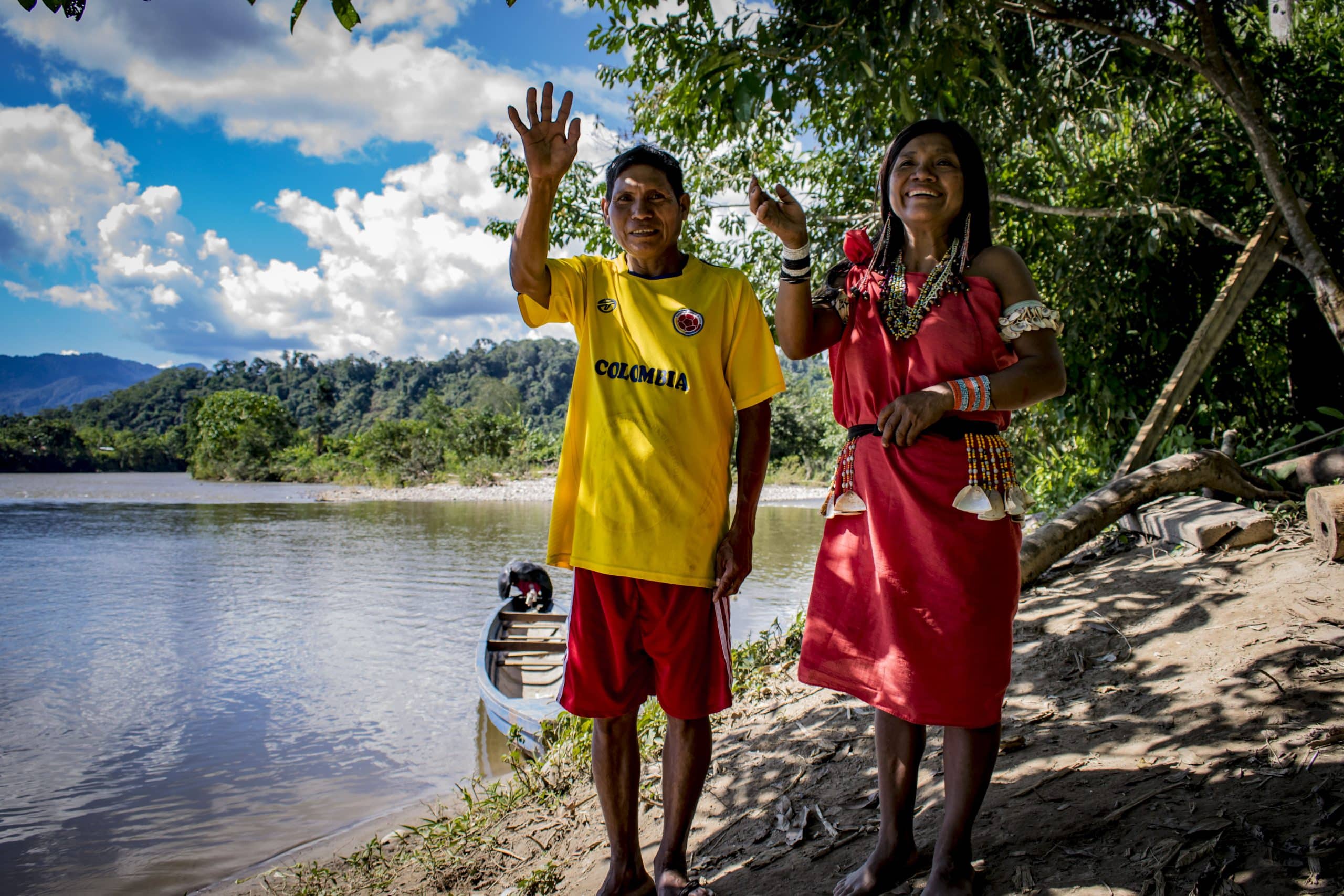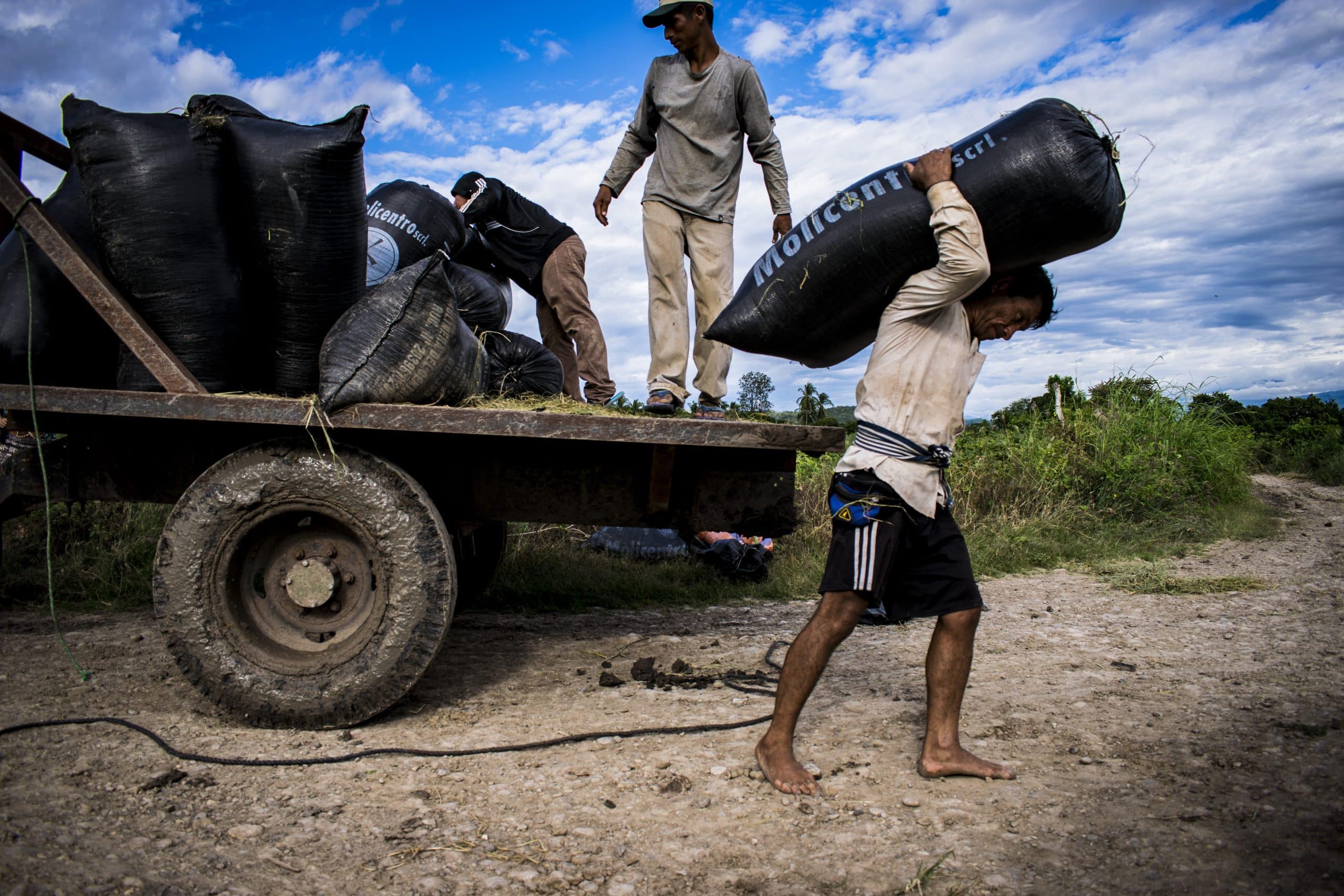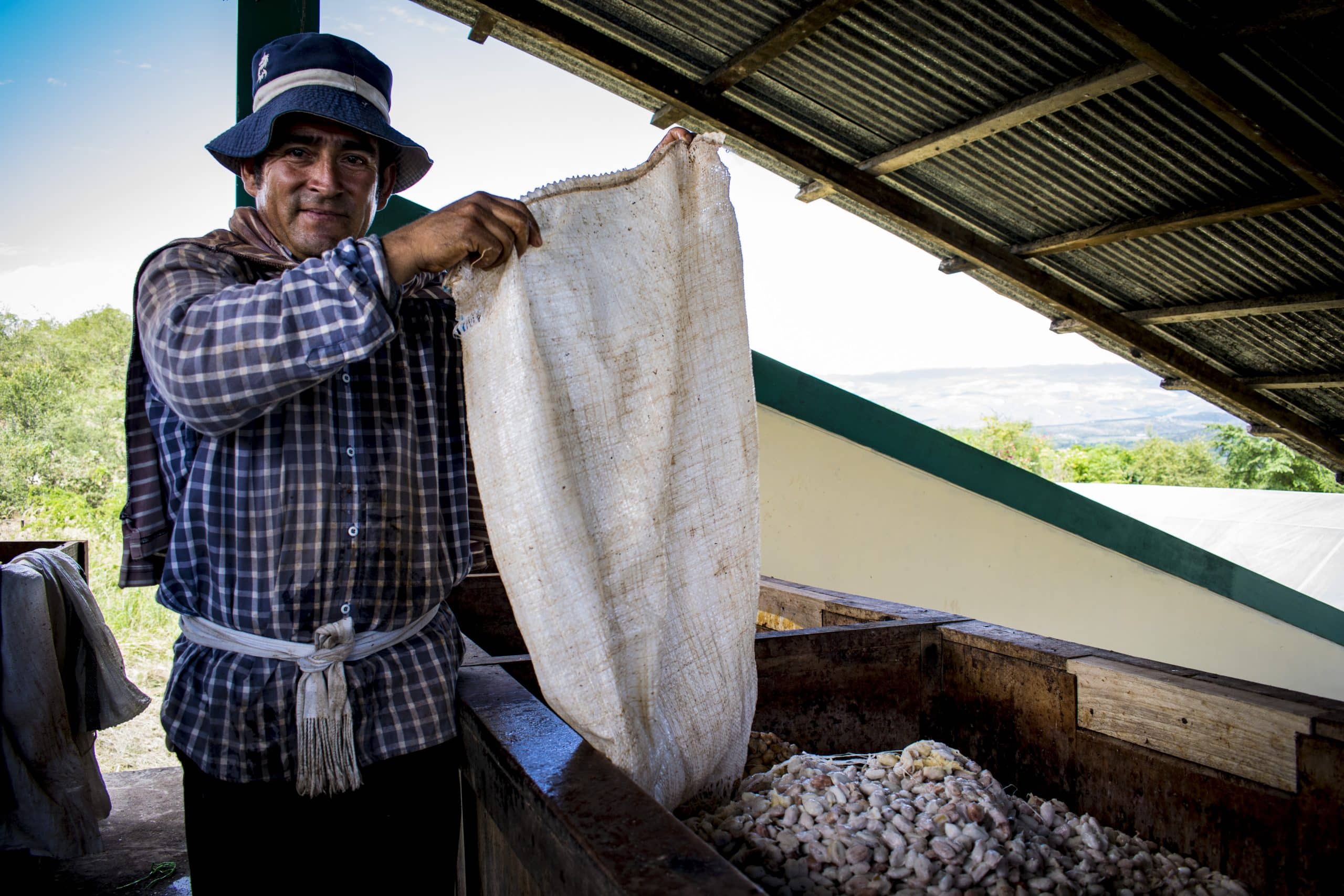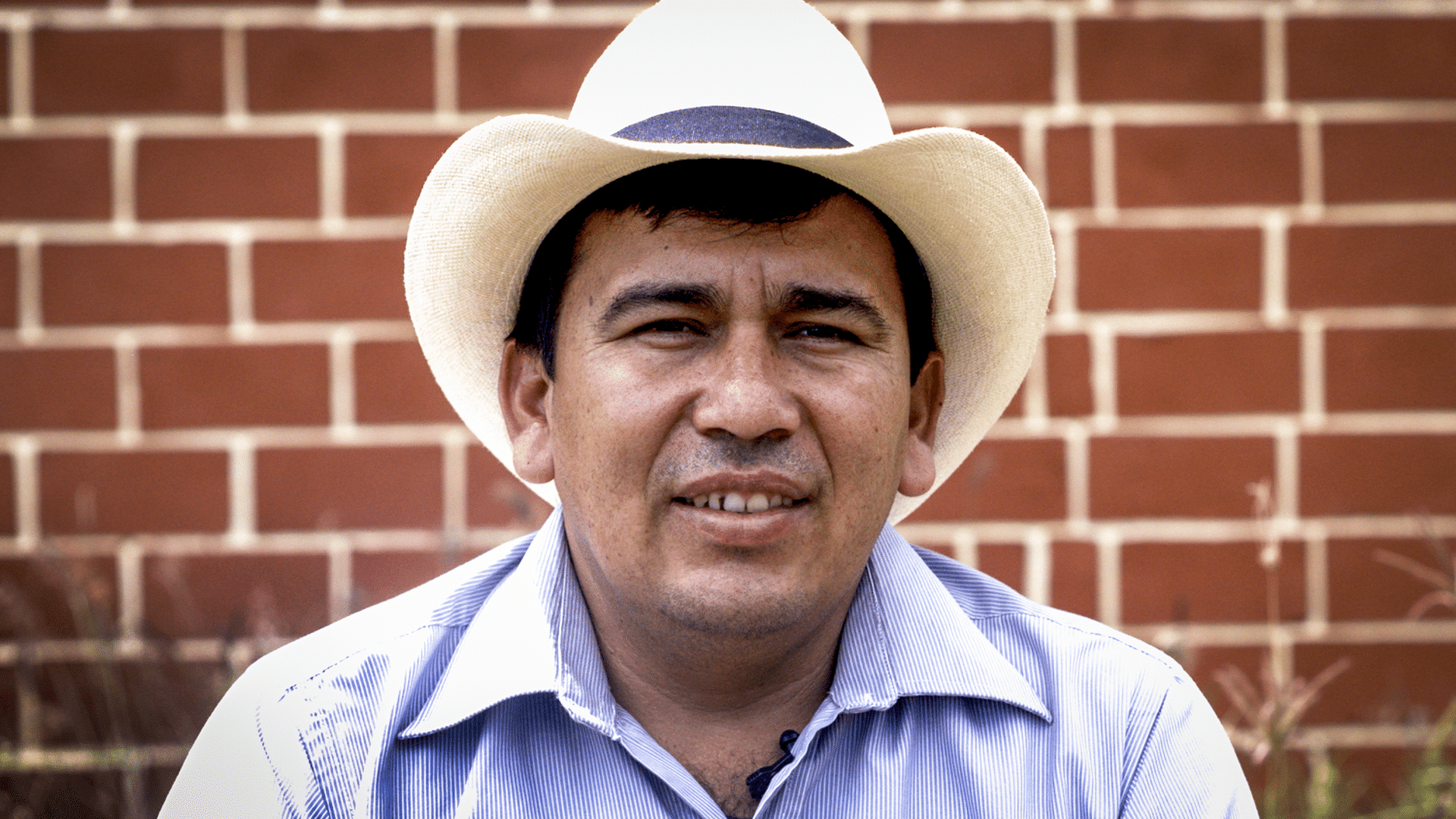
For decades, the indigenous Awajún people of northern Peru have struggled to overcome systemic poverty, discrimination, and violence. Now, as members of the APROCAM cooperative, they’re attaining higher incomes—and a better quality of life.
In Peru’s northern Amazon, Awajún farmers struggled for years to eke out a living growing cacao on the banks of the Utcubamba River. Completely reliant on traders to bring their crops to larger markets, farmers had little control over the prices they earned for their labor.
“In the past, the traders used to pay however they wanted,” recalls farmer Maria Sukut. “They paid one to two and a half soles (30 to 75 cents) [per kilogram]. That’s not a fair price.”
A New Opportunity
In 2009, things took a turn for the worse. Ignoring strong dissent from indigenous leaders fighting to protect their land from exploitation, the Peruvian government passed regulations that allowed oil companies to drill in the Amazon rainforest. Communities across the Amazonas region rose up; in Bagua, a small city nestled between the Amazon and the Andes, tensions boiled over. When hundreds of Awajún people marched to demand better rights, riot police used live ammunition to disperse the protest. Thirty-three people were killed, 200 were injured, and 185 more were detained.
In the wake of these tensions, many Awajún farmers in the region believed they could not rely on the government to supply better economic conditions or political representation for their community. So when they learned of APROCAM, a business that was connecting local producers to markets, they saw an opportunity to gain economic power and autonomy. Dozens of Awajún cocoa farmers joined the cooperative—and today, 60% of members are from indigenous communities.
“Thanks to APROCAM, we’re earning much more than we did with intermediaries,” says Maria. “We’re better now.”
Better Training, Better Prices
APROCAM doesn’t just bring its members better prices; it also offers them training and services that boost their productivity. Farmer Nicodemo Wachapea has personally benefited from the cooperative’s support:
“Pests and diseases are the most critical problems that we face with cacao; we don’t receive any support from the government authorities, and only APROCAM offers us technical assistance, because we’re members of the cooperative.”
Root Capital gave its first loan of $200,000 to APROCAM in 2014. Since then, we have provided the business with more than $1.5 million in cumulative working capital—essential financing that has allowed APROCAM to steadily grow. In 2013, before the cooperative had received its first loan from Root Capital, it sold 56 metric tons of cocoa; by 2017, sales had risen exponentially to 320 metric tons. This business growth enables APROCAM to bring higher prices to hundreds of farmers.
Since 2015, Root Capital has also offered the cooperative’s staff vital training, making sure that they can maintain efficient business processes while APROCAM’s sales steadily increase. Our team has focused on strengthening the business’ long-term financial forecasts, which will help APROCAM’s leadership ensure they have enough cash on hand to continue training 100% of their members.
In addition, over the past two years we’ve trained the cooperative’s technical team on the use of mobile technology, which allows them to more efficiently run the farm-level inspections that ensure the cooperative complies with Fair Trade and organic certifications. The cooperative can then use that data to analyze common challenges that their producers are facing—and how the business can intervene to overcome them.
“These tools are simple,” says general manager Mario Zulueta Vásquez. “But they help us manage the cooperative well.”
A Story of Success
Mario has big plans for the cooperative’s future. To boost productivity, he says, “We’d like to remain close to [our members] over time, providing technical assistance and training. Continuing to work together will enable them to improve their quality of life as well as their socio-economic conditions.”
For decades, the story of the Awajún people has been one of poverty, hardship, and heartbreaking violence. Today, with help from APROCAM and Root Capital, they’re writing a new story of success.
Information in this client profile is up-to-date as of publishing time.


